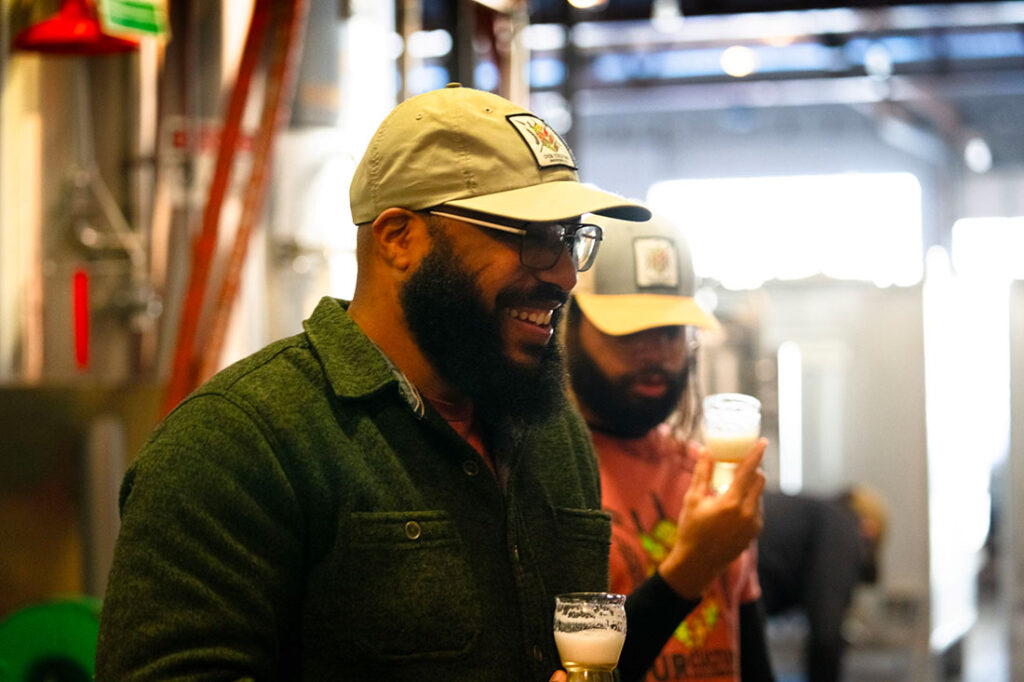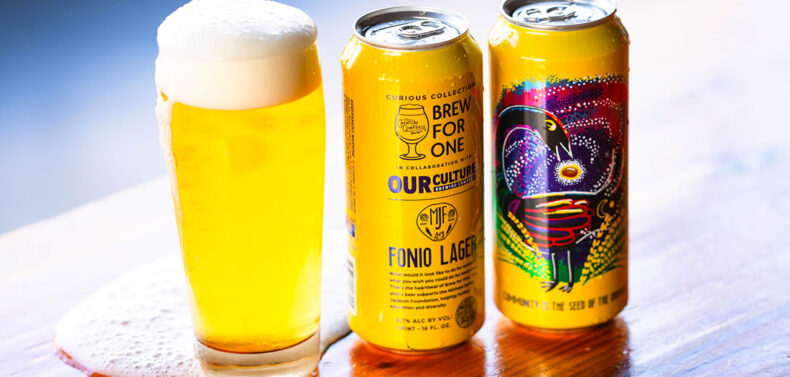There are 10,000 craft breweries in the United States, yet just 1% are Black-owned, and 2% are owned by women. Athens brewery Creature Comforts aims to help close the disparity with the release of a new beer brewed with African grain, with proceeds going to train aspiring Black brewmasters.
“In this big, beautiful industry I am so proud to work in, there is not enough representation” for women or people of color, said Fenwick Broyard, vice president of commercial operations for Creature Comforts.
The special release, Fonio, is part of Creature Comforts’ Brew For One series, started in 2017, when head cellarman Bob Weckback died, to provide a college fund for his son. It is named for a type of grain grown in West Africa that makes up 20% of the beer’s mash bill (grains that provide flavor and the sugar that yeast turns into alcohol).
While little-known in the U.S., fonio is a vital subsistence crop in several African nations due to its drought tolerance, resistance to pests and ability to grow without fertilizer, according to UGA genetics professor Jeff Bennetzen. Those qualities also make it a grain that breweries are looking to as the cost of importing wheat and barley grows.
“Ukraine is a war zone, and Canada is suffering from wildfires and potentially tariffs. That’s where the majority of our grain comes from,” said Isaiah Smith, cofounder of Our Culture Brewing in Atlanta, which collaborated with Creature Comforts on Fonio. Smith participated in a panel discussion with Broyard and others at a Feb. 28 release event.

Buying fonio helps struggling African farmers and may lead to the grain eventually becoming a cash crop. Buying Fonio helps the Michael J. Jackson Foundation, which sends Black grant recipients to brewing school.
One of them is Robert Young III, who founded Tapped 33 Brewery in Augusta. Young was a homebrewer making beer on his porch, but did not know how to break into the industry until he came across the Michael J. Jackson Foundation online. His first application was rejected, but he was later awarded a grant that sent him to a top brewing school in Germany.
At a time when many companies are dismantling their diversity, equity and inclusion programs under pressure from the Trump administration, Young emphatically described MJJ as “not a charity.” Instead, he said it’s a service to the craft beer industry—one that brings in more creativity and attracts new customers.
The unique backstory of a beer like Fonio also sets it apart from other products, according to Smith. “It gives people more reason to engage, other than the beer tastes good. A lot of beer tastes good,” he said.
Garrett Oliver, the head brewmaster at Brooklyn Brewery, started the MJJ Foundation in 2020, after reflecting on the COVID-19 pandemic and the murder of George Floyd. Oliver said that he realized he wasn’t getting job applications from Black brewers because he was requiring certification and experience, and where would they get it? “What it did was erect a barrier so high, no African American could possibly get over it,” Oliver said. So far, the foundation has sent 58 grant recipients to brewing school, he said.
Oliver named the foundation for one of his mentors, the influential British beer and whiskey writer Michael Jackson, who helped popularize different beer styles. Jackson was “an anti-racist” who “made sure Black people were esteemed and respected in the industry,” Oliver said.
He discovered fonio at a museum fundraiser held by The Roots drummer Questlove, where he met a chef from Senegal. “When we made beer with fonio, the beer was spectacular,” Oliver said. “It had all these beautiful aromatic qualities,” like white wine and tropical fruit.
So why isn’t fonio more widely used already? “They [Big Ag] don’t want you to know,” he said. “They own your senator.”
While Oliver worries about driving up the price of fonio and putting it out of reach of Africans, as well as the corporate agriculture industry snuffing out its production, the potential benefit for small farmers and the environment outweighs those concerns. “If 5% of beer were [made with] fonio, you’d change so much for so many people, millions of people,” he said. “And the beer would taste better.”
Like what you just read? Support Flagpole by making a donation today. Every dollar you give helps fund our ongoing mission to provide Athens with quality, independent journalism.










